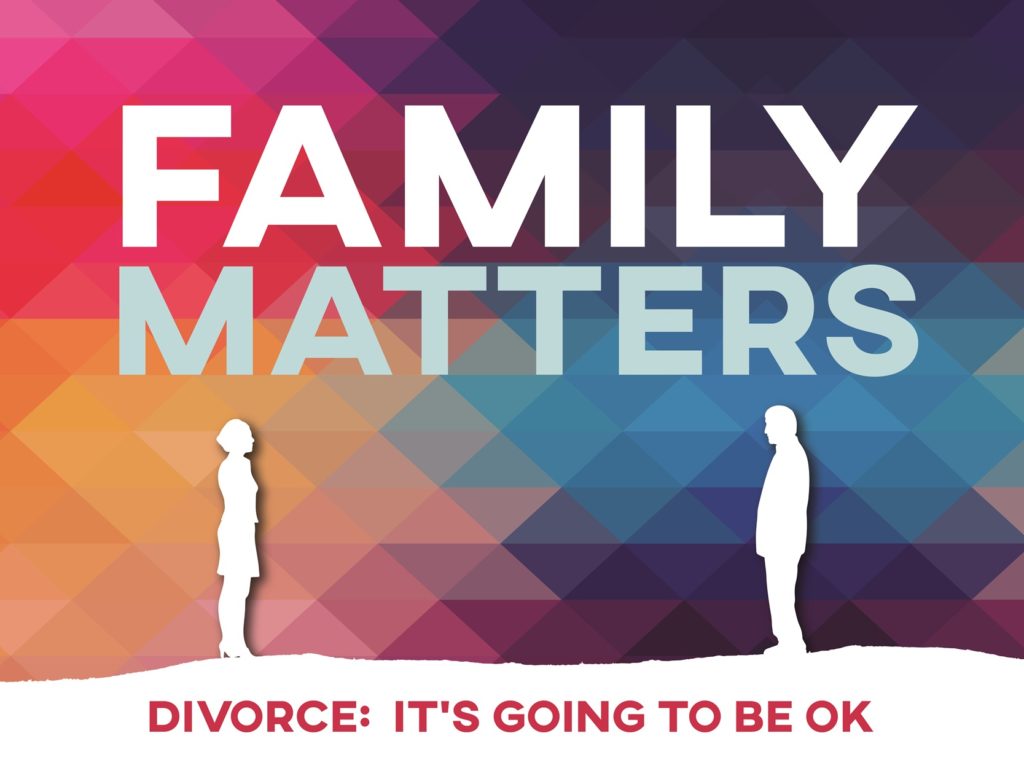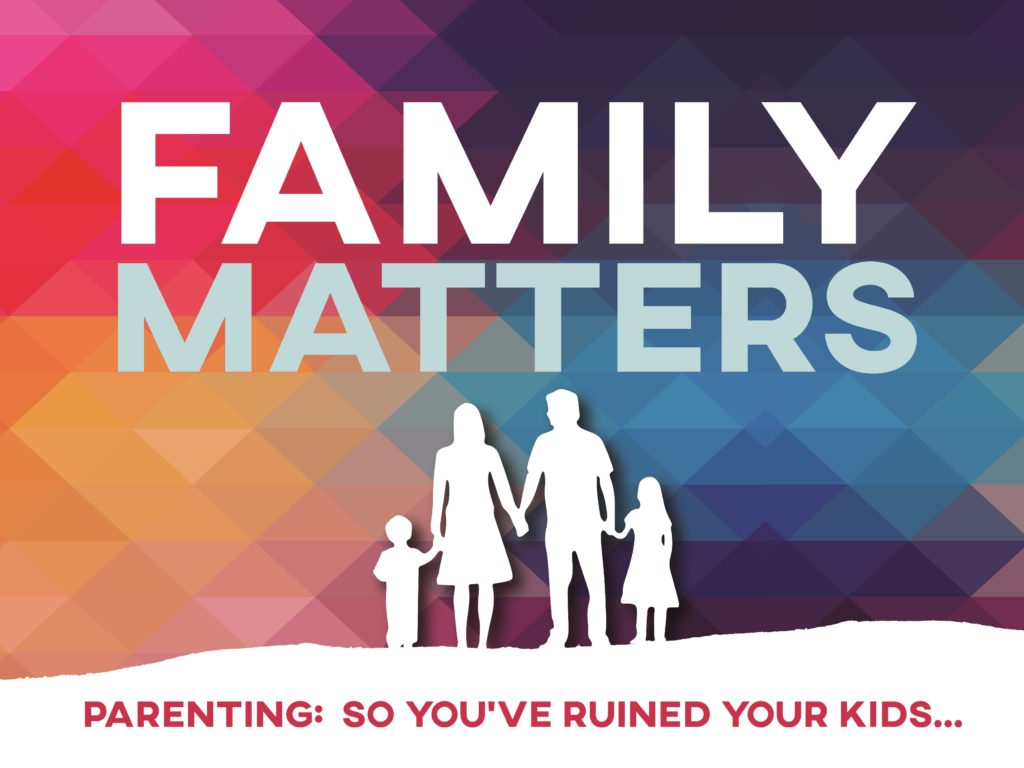
Preaching through this current series at Central on our family issues is giving our church a great opportunity to have difficult conversations about serious matters. We made promises a long time ago that Central will be a safe place to have hard conversations. And that continued with this past Sunday’s sermon on divorce and remarriage. We can’t ignore stuff like this. We have to talk about it.
It’s an important topic. If marriage is intended by God to reflect his holy love and faithfulness to the world — and it is — then anything that disrupts it or destroys it is serious. It’s also a relevant topic. Everybody in our church is impacted in some way by divorce. We’ve all been affected. This topic can also be controversial. For a lot of us, our background and our instinct is focused on having the “correct” position and being “doctrinally sound.” In other words, we’ve argued about this stuff. And it’s emotional. It’s hard to have strictly rational, logical, biblical, theological discussions about divorce because it’s so personal. And painful.
Sunday’s sermon at Central went like this: divorce is sin, we’ve tried to legislate that sin through laws, marriage after divorce is not a sin, God forgives sin through the cross. I’ll post the sermon here in this space over the next four days, according to those four main points.
Divorce is Sin – It’s not the unforgivable sin. But it is sin.
In Matthew 19:3, the Pharisees ask Jesus where he stands on Deuteronomy 24: “Is it lawful for a man to divorce his wife for any and every reason?” Deuteronomy 24 begins, “If a man marries a woman who becomes displeasing to him because he finds something indecent about her, and he writes her a certificate of divorce, gives it to her and sends her from his house, and if after she leaves his house she becomes the wife of another man, and her second husband dislikes her and writes her a certificate of divorce…”
We know from ancient rabbinic writings that during Jesus’ day there were two schools of thought on Deuteronomy 24. Two very prominent rabbis at this time disagreed on what “indecent” means. Shammai taught that “indecent” means fornication or sexual unfaithfulness. Hillel taught that “indecent” means anything the husband doesn’t like — she burned the toast, she can’t parallel park, whatever. It’s a tough question. The Law is a bit ambiguous here. Where are you, Jesus? Can you divorce for any and every reason, or just for sexual infidelity?
“Haven’t you read,” Jesus replied, “that at the beginning the Creator made them male and female, and said, ‘For this reason a man will leave his father and mother and be united to his wife, and the two will become one flesh?’ Therefore, what God has joined together, let no one separate.”
“Why then,” they asked, “did Moses command that a man give his wife a certificate of divorce and send her away?”
Jesus replied, “Moses permitted you to divorce your wives because your hearts were hard. But it was not this way from the beginning. I tell you that anyone who divorces his wife, except for marital unfaithfulness, and marries another woman commits adultery.”
Jesus comes down on the conservative interpretation. He sides with Shammai that “indecency” means sexual infidelity. But he also points the Pharisees to the more important principles and foundational purposes of marriage for all time. God joins a married couple together. God unites a husband and wife and the two become one holy person. And it is a sin to tear that divine union apart.
Well, if divorce is a sin, why does God allow it with a divorce certificate? That’s a really good question. And Jesus doesn’t shy away from it. He explains that divorce was never part of God’s plan, marriage has always been intended for life. But God knows that marriages are going to fail. We live in a fallen world, we are all broken people. God anticipates divorce. It’s not approved, but it’s regulated; it’s not ideal, but it’s permitted. Why? “Because your hearts were hard.” The old KJV says because of “the hardness of your hearts.”
Do we still have hard hearts today or has that changed? (Answer that silently. To yourself. About yourself. Not about your spouse.) Jesus isn’t saying hard-heartedness is over and we don’t need the provision for it anymore. He’s simply saying it’s a sin to terminate a marriage and, yes, it happens.
Also, in verse 9, when Jesus says, “commits adultery,” that’s a metaphor for covenant-breaking. Adultery in the Bible isn’t always about sex; it’s an approved figure of speech for not keeping the marriage promises. You find it in the Old Testament and the New Testament. Adultery means covenant breaking.
“But I tell you that anyone who divorces his wife, except for marital unfaithfulness, causes her to become an adulteress.” ~Matthew 5:32
How can the wife be an adulteress when she hasn’t had sex with anybody else or remarried? How can she be guilty of adultery just because her husband divorced her? Don’t overthink that. The only way that’s possible is if Jesus is using “adultery” as a metaphor for covenant breaking. The husband has made it impossible now for the wife to fulfill her marriage vows. She can’t keep her covenant promises because he’s divorced her. When you’re married, you’re not the only one impacted by your choices. The two have become one. He’s breaking the marriage vows and now she’s an adulteress. It doesn’t mean she’s had sex outside the marriage; it means the marriage is over for both of them.
And that’s the sin: ending the marriage covenant, breaking the marriage vows made before God. There could be any of a bunch of reasons for the divorce — sexual misconduct, neglect, abuse, addiction, boredom, whatever. But the net result is that the covenant is broken and that’s the sin of divorce. “What God has joined together let no one separate.” There may be different degrees of guilt on one side or the other, but the sin of divorce is breaking the union that God has commanded us not to break.
“To the married I give this command (not I, but the Lord): A wife must not separate from her husband. But if she does, let her remain unmarried or else be reconciled to her husband. And a husband must not divorce his wife.” ~1 Corinthians 7:10-11
Notice the Bible uses the terms “separate” and “divorce” interchangeably. “Separate” and “divorce” mean the same thing. Now, in the United States, you can get a separation and still be legally married. You and your spouse don’t have to live together, you can live in different states, you don’t even have to see each other at Christmas, and you’re still legally married in the eyes of the government. In the Bible, in God’s eyes, separation is divorce. You’re not united, you’re not together in body or spirit. The covenant relationship created by God to reflect to the world his matchless glory and his faithful love has been ripped apart. God says through his prophet Malachi that divorce is an act of violence.
Divorce is sin. It’s not an unforgivable sin. But it is sin.
Peace,
Allan
 A Roman centurion approaches Jesus in Matthew 8 and asks him to heal his servant back home. “Lord, I do not deserve to have you come under my roof,” he says to Jesus, “but just say the word, and my servant will be healed.” Jesus observed that this soldier had great faith.
A Roman centurion approaches Jesus in Matthew 8 and asks him to heal his servant back home. “Lord, I do not deserve to have you come under my roof,” he says to Jesus, “but just say the word, and my servant will be healed.” Jesus observed that this soldier had great faith.




Recent Comments